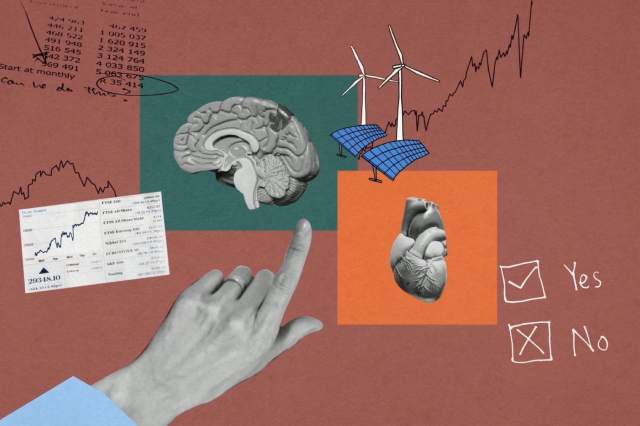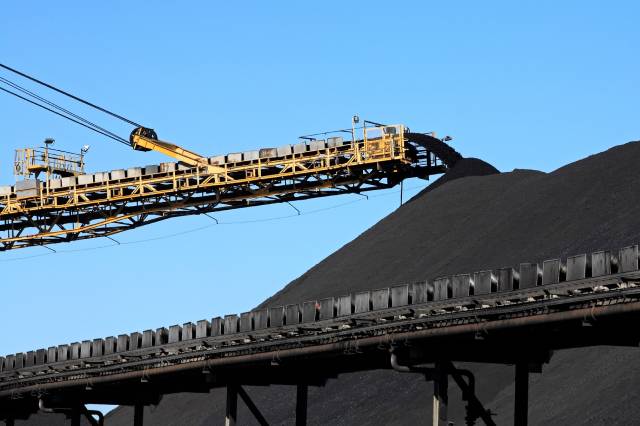How to: Take action with your finances
As consumers, we have the power to vote literally and figuratively with our money. We can support businesses and organisations with our patronage, and we can leverage our position as customers to advocate for more ethical business practices.
Banks, insurance, and investment options may not seem like the most obvious consumption choices to create positive change. However, by the end of this article, you’ll clearly understand how and why your finances matter in the fight against climate change.
So what's the problem?
Many financial institutions both in Australia and abroad keep funding the expansion of fossil fuels. Since the international commitment to limit warming to 1.5 degrees in 2015 through the Paris Agreement, Australia’s “Big Four” Australian banks have lent $57.5 billion to companies and projects that expand fossil fuel supply.
A recent ABC analysis found that 12 Super Funds with ‘ethical’ labelled super options collectively hold almost $1.2 billion worth of fossil fuel industry shares. Analysis by the Australian Conservation Foundation in 2023 found that Australia’s largest 15 Super Funds have more than $25 billion invested in companies that are expanding coal, oil, and gas production.
If this is news to you, you’re not alone. Many customers may not be aware of the extent to which financial institutions are funding the expansion, establishment, and continued operation of large-scale fossil fuel projects.
Each of us can send a clear signal to the market that climate policies matter. We can make wise choices in selecting our banks and financial institutions. We can join campaigns to pressure financial institutions to make positive changes. We can take action with our finances.

We can join campaigns to pressure financial institutions to make positive changes.
Ways you can act
Your banking
Banks and other large financial institutions are a crucial determinant of how quickly the economy makes the transition to clean energy. They have the scale and the leverage to do good by funding the infrastructure required for the transition (one of the reasons we still invest in some banks). Or they can harmfully contribute to climate change. They do this by funding high-emission companies and the expansion of fossil fuel projects.
Find out if your bank is directly investing in fossil fuels
Use the Market Forces ‘Compare Bank Table’ to find out if your bank is directly investing in fossil fuels. If they are, you can consider banks operating in Australia that do not directly invest in fossil fuels.
Compare your bank today.
Check your bank’s climate policies
Check your bank’s climate policies to see if they align with your values. A bank’s annual reports and websites are a good place to start to find out more about their approach to the climate crisis. Each of the banks will have a climate policy outlining their positions on which companies they’re prepared to lend to, which are worth reading too. Their responses to climate-related questions at their AGMs can be insightful. You can also ask them directly.
Here's an email template you can use.
Advocate for change as a customer or move banks
If you’ve dug a little deeper into the climate policies or lending of your current bank and have found them less than satisfactory, let them know. One voice asking for change may not feel impactful but if every disappointed customer let their bank know about their feelings and applied pressure, there’d be more incentive for the business to take it seriously. That’s the power of people-powered action.
Market forces can help you to put your bank on notice, telling it that if it continues to choose fossil fuels, you’ll choose another bank.
If you’ve decided that you’re not comfortable with the level of investment your bank has in fossil fuels, you can choose to switch to a bank that better aligns with your values.
Taking action with your finances can be as small as a 15-minute search for information to be better informed, or as big as changing your investing portfolio.

The true power of people powered action is our collective input.
Your investments
When you invest in a company, you want it to succeed. The better it does, the more it grows, the more you’re likely to profit. So, investing in industries and companies that don’t align with your values can be like cheering on the other side of a sports match.
This can be even worse if you don’t know the extent of your investments in the first place. Super Funds, Managed Funds, Exchange Traded Funds (ETFs), and Index Funds all include a multitude of shares that aren’t always easy to track. In cases like these, it’s entirely possible that they directly include oil, coal and gas producers. Not to mention tobacco, gambling and other harmful industries.
Find out if you’re directly invested in fossil fuels
Most managed funds & ETFs publish their holdings, so you’ll be able to check where they invest your money. You can check who manages your fund via your investing platform or statements and use their websites to review ‘holdings and allocation’.
Review your investments
If you’ve investigated your investments and identified holdings that don’t align with your values, you may now decide to adjust your investments.
If your investments are managed by a Financial Adviser, request a review of your investment options and any potential exposure to industries that you don’t want to support.
There are many ethical investment options in the market, including 11 Australian Ethical Managed Funds, which are established using the same ethical criteria as our Super investment options.
While doing this, you can review any future investments you may want to make to ensure that you’re making investment decisions that suit both your financial goals and your personal values.
As consumers, we have the power to vote literally and figuratively with our money.
Do you want financial institutions to do more on climate change?
Collective action can be a powerful way to catalyse positive change. Market Forces run campaigns aimed at holding financial institutions accountable when it comes to climate change.
- Super – Market forces publishes the “Climate Wreckers Index” – a list of the worst of the worst companies expanding fossil fuels. View the list and learn ways to take action.
- Banks – Market forces can help you to put your bank on notice, telling it that if it continues to choose fossil fuels, you’ll choose another bank.
- Shareholder resolutions – In Australia, it takes a minimum of 100 shareholders to propose shareholder resolutions, You can join Market Forces resolutions. Here’s a step-by-step guide.
Taking action with your finances can be as small as a 15-minute search for information to be better informed, or as big as changing your investment portfolio. The true power of people-powered action is our collective input.
Find out more about our vision to create a better world where money is a force for good.



